Delegation of CII Explores Business Opportunities in UK/Ireland
Recently, Mr Perminder Singh Malik, Founder Director and CEO of DLP India, became a part of an overseas delegation for exploring start-up and innovation opportunities led by Kris Gopalakrishnan, Chairman of CII Start-up Council and Chairman, Axilor Ventures apart from being the Co-founder, Infosys.
Over 30 innovators and entrepreneurs along with Kris Gopalakrishnan from CII were on a visit to major cities in the UK and Ireland for the Mission intending to provide the much-needed exposure to the innovators from the country to observe and experience the market opportunities and trends and how accessible they are for the Indian entrepreneur. Other accomplishments of the delegation’s visit were the promotion of a cross-learning programme between Indian and Global start-up ecosystems aiming at exploration of Global Start-ups working in association with Indian industries.
The delegation started its 5-day exploration with the major business hubs of the United Kingdom including London, Cambridge, Edinburgh, and Manchester, followed by a visit to the Dublin in the Republic of Ireland. The objective was to understand the start-up ecosystem and the acceleration and growth hubs for future ventures.
15 start-ups, 8 representatives of Small and Medium Scale Enterprises (SMEs) and eight members of academia, were represented by 32 delegates in total.
Mr Perminder Singh Malik, for instance, is one of the delegates who were a part of the delegation with an aim to promote the importance of skill development to facilitate start-ups to head in the right direction. DLP India, which has been in the industry for more than 10 years, offers more than 2,000 quality skill development online courses, develop E-Courses and customize Moodle LMS along with promoting Distance Learning degree courses through its portals for accelerating their growth in any sector they want to prove their salt in.
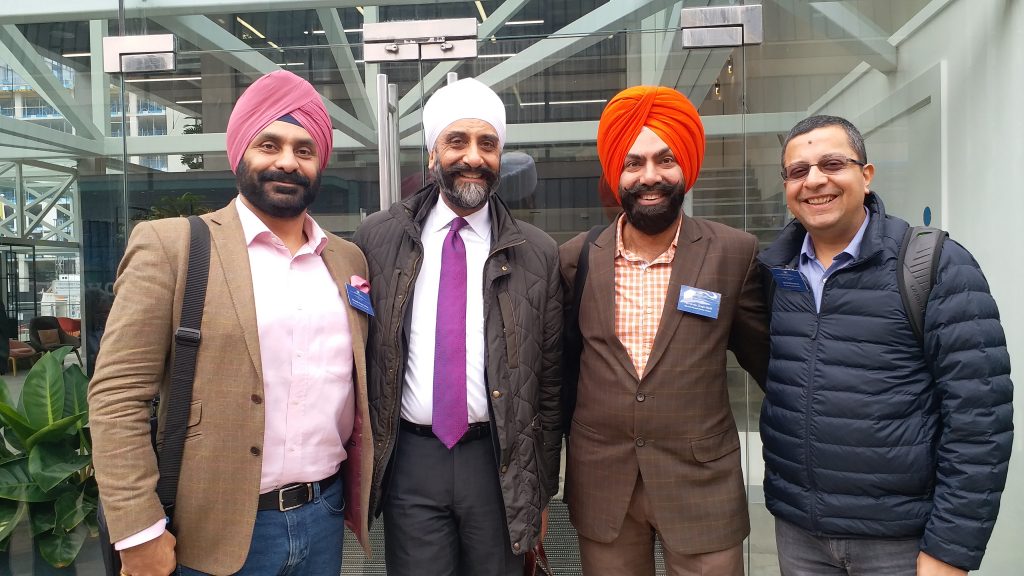
Seeking collaboration and bridge the gap between the nations to facilitate research, innovation and entrepreneurship, while exploring the opportunities that could arise with cross-border funding, partnership in start-ups, and incubation and acceleration of emerging start-ups, was the aim of the delegation.
As per Mr Gopalakrishnan, the Indian market has become more dynamic than ever before, giving opportunities to several start-ups to innovate and grow. Not just that, it is leading the game with a competitive number of start-ups innovating here. With collaboration, both countries can grow, finding creative solutions to persistent problems. Both the countries, India and the UK have fresh and innovative talent, funds to nurture ideas and exploit new market potentials.
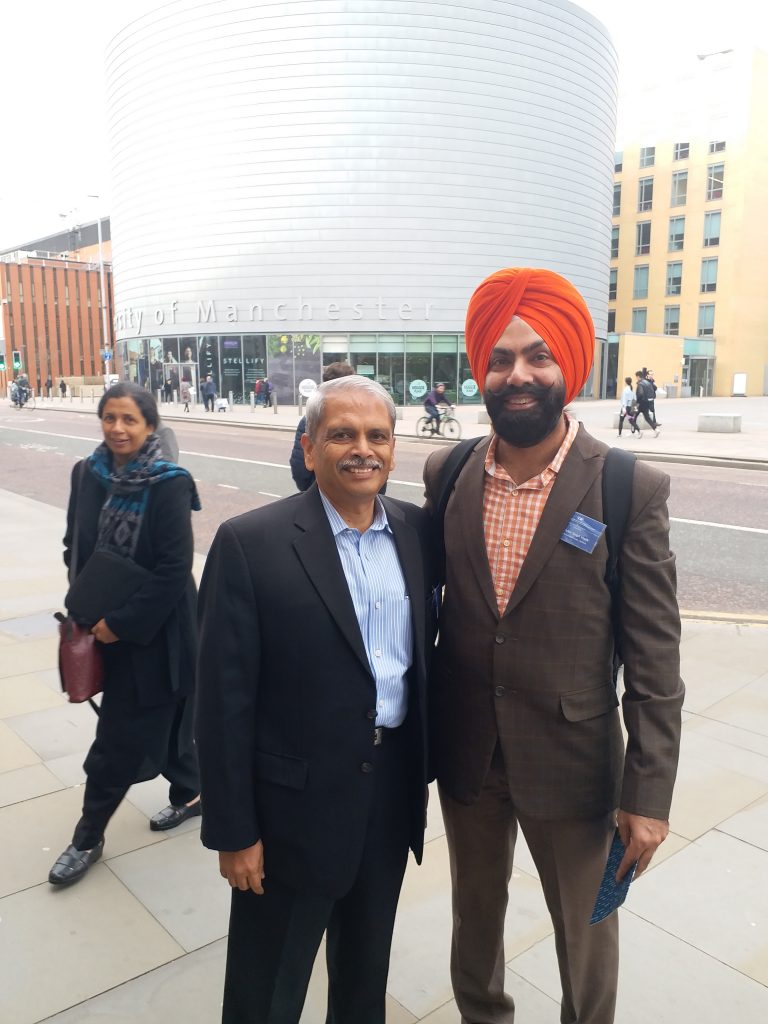
The change in societal attitude, according to K Gopalakrishnan, has been the most significant catalyst in spawning new ventures because society sees failure as a stepping stone towards success rather than a stigma.
India should not lag in terms of innovation and scale faster in the 21st century for taking the best possible advantage of societal and economic changes. Provision of potable water, fuels, and transportation in the country, in Kris’s opinion, are promising sectors for youth to innovate in along with the modern problems of the advancing society.
An up-and-coming Business to the Business model of exchange between UK and India came across with everything Kris tried to bring forth through the interaction. He suggested that the countries could come together to use reverse innovation in sectors such as disposable waste management, medical diagnostics, and NHS data management techniques to reduce costs. Plus, he emphasized that it is the service sector which will be able to create jobs in the future because with the emergence of Artificial Intelligence and Automation, one cannot rely upon manufacturing industries. He said that it is the health, education, and processed foods industries that will see a growing consumer market in the coming years. Also, the research on the issues of the ageing for obtaining their solution will see great potential. Entertainment too made to his list as he emphasized how the now-evolving population is looking for forward-thinking content rather than dramas that make little sense which can be created on lower budgets. Disparity, caste system, and pollution are acting as deterrents in the growth of Indian Industries that already exist.
Read Also: Implementing an Online Learning Content Strategy
A session on UK India Tech Partnership Chaired by Fergus Auld, Head of South Asia, Foreign & Commonwealth Office was the first attraction of the conference followed by an overall look at the strategy the UK supports for industries by Prof John Loughhead, Chief Scientific Advisor, Department for Business, Energy and Industrial Strategy.
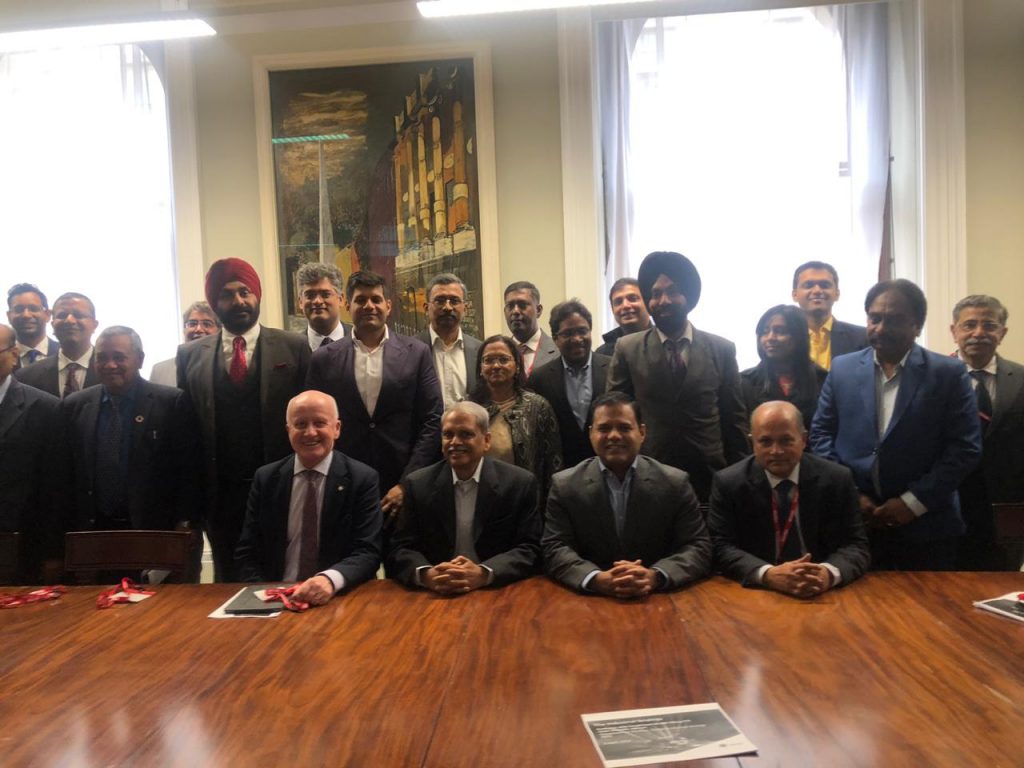
A meeting with the young innovators at the University of Cambridge was organized for the delegates. Following the University visit, they were introduced to TechUK for gaining a better insight into the real potential of UK India Partnership in terms of technology. Then, they visited the leading tech start-up accelerator of UK- RocketSpace.
High Commissioner of India to the UK, Her Excellency Mrs Ruchi Ghanshyam also met delegates from India to understand the purpose of their visit.
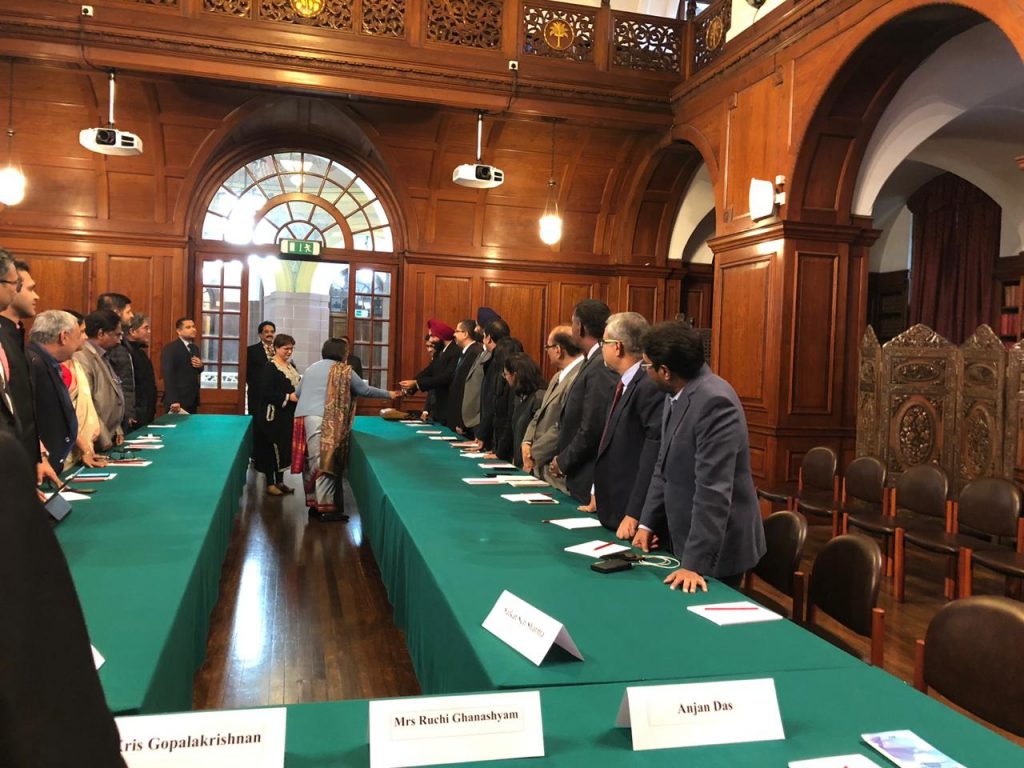
In the University of Edinburgh, the delegation visited Bayes Centre that houses world-leading data science and artificial intelligence research.
In the Manchester City, Manchester India Partnership (MIP) and MIDAS offered effective insights into the opportunities Indian innovators and investors could explore. MIP coordinated with local companies to host the delegation and organized a visit got them to The Landing, in the Media City, which is a co-working space with a state-of-the-art environment for start-ups to grow in. There they interacted with the University of Salford and University of Bolton.
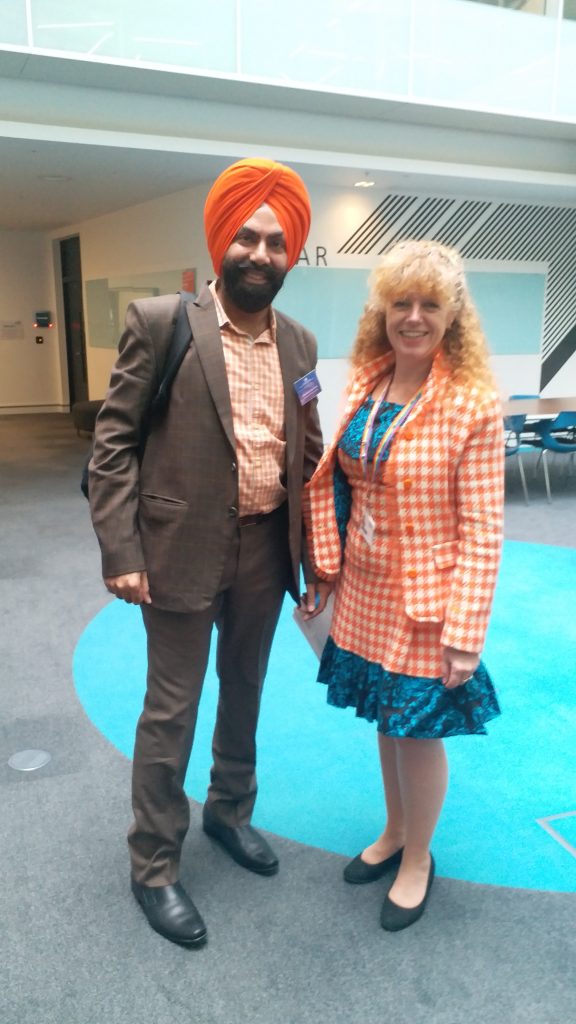
Mr. Perminder Singh Malik with Joanne Purves (Pro-Vice-Chancellor, University of Salford) 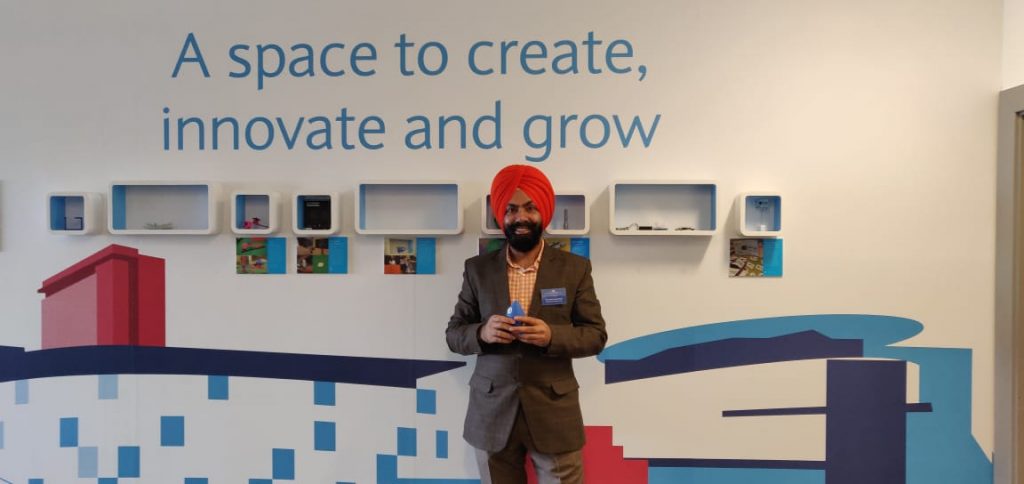
At “The Landing” 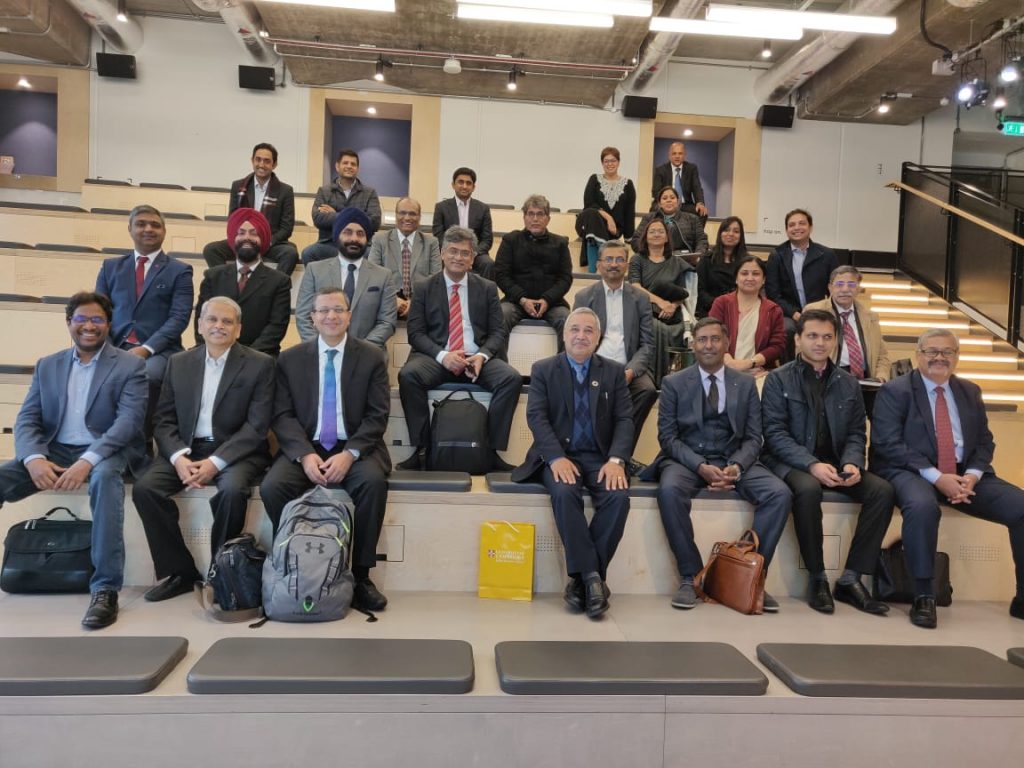
Rocket Space (an incubator)
Through a Tete-a-tete interview between Vikas Shah MB and Kris, ‘Competitiveness of India Inc – India@75: Forging Ahead’ came forward as the central theme of the decade, stating that India is all set to become a 5 trillion economy with astounding market potential in the next five years. Kris used the success of Infosys as an example of how Indian youth can ride the wave and grow.
Employment generation, rural-urban connect, energy security, environmental sustainability and governance were highlighted as the five major areas where India will focus on for a robust growth track.
The next delegation’s tour was the University of Dublin, the Republic of Ireland, where the delegates got an opportunity to interact with the members of Ireland and India Business Association (IIBA). Then, they visited the Nova UCD, which serves as the hub of innovative start-ups. The visit was concluded with a visit to Ambassador Sandeep Kumar, Ambassador of India to Ireland.
With initiatives such as this, CII is working towards creating and encouraging the creation of nurturing ecosystems such as accelerators and co-working spaces. In this way, they will be able to provide all-around support to the innovators who are willing to risk failure for the greater good. Besides, the start-ups that are gaining support are not confined to tech-based innovations but comprise a hoard of innovative products to solve the traditional hindrances in the manufacturing and service sectors as well.